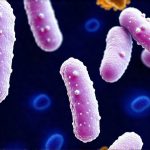The intricate world within our gut – the gut microbiome – is increasingly recognized as a pivotal player in overall health, extending far beyond just digestion. For years, we’ve understood that these trillions of bacteria, fungi, viruses and other microorganisms influence nutrient absorption, immune function, and even mental well-being. However, recent research is highlighting a significant link between the diversity of this microbial community and our metabolic rate – the efficiency with which our bodies convert food into energy. A less diverse gut microbiome isn’t merely an absence; it’s often a sign that something within your lifestyle or environment is disrupting this delicate ecosystem, potentially contributing to sluggish metabolism and related health challenges. If you suspect issues with gut transit it’s important to investigate further.
Metabolism isn’t a fixed entity. It fluctuates based on age, genetics, activity levels, and dietary choices. But emerging evidence suggests gut microbiome diversity plays a surprisingly crucial role in regulating metabolic processes. When the microbial landscape is rich and varied – boasting a wide array of species – it’s better equipped to efficiently process food, extract nutrients, regulate inflammation, and even influence hormone production related to appetite and energy expenditure. Conversely, when diversity dwindles, these functions can become compromised, potentially leading to weight gain, insulin resistance, and difficulties maintaining a healthy metabolism. Understanding the signs that indicate low gut microbiome diversity is the first step towards proactively supporting this vital aspect of your health. You might also consider if diet overstimulation could be a contributing factor.
Recognizing the Signs: How Gut Dysbiosis Impacts Metabolism
A lack of microbial diversity, often referred to as dysbiosis, doesn’t always present with obvious symptoms. In many cases, it manifests subtly, making it easy to overlook. However, several indicators can suggest that your gut microbiome might be contributing to a slowed metabolism. One key sign is persistent digestive issues – not necessarily dramatic ones, but rather chronic bloating, gas, or changes in bowel habits (constipation or diarrhea). These aren’t always attributable to food sensitivities; they could indicate an imbalance in the gut flora struggling to efficiently process your diet. Another telltale sign relates to energy levels: feeling consistently fatigued even with adequate sleep and a balanced diet can be linked to impaired nutrient absorption caused by dysbiosis.
Furthermore, unexplained weight gain or difficulty losing weight despite consistent effort is often associated with metabolic slowdowns. A less diverse gut microbiome can impact how your body processes fats and carbohydrates, potentially leading to increased fat storage. Beyond physical symptoms, pay attention to cravings – particularly strong desires for sugary or processed foods. The gut microbiome influences hormone production related to appetite regulation; an imbalanced microbiome can disrupt these signals, triggering intense cravings that derail healthy eating habits. It’s important to note that these signs aren’t definitive diagnoses; they are indicators that warrant further investigation and potential lifestyle adjustments. If you notice persistent digestive issues, it might be time for a gut reset.
Finally, consider your response to stress. Chronic stress significantly impacts the gut microbiome, reducing diversity and exacerbating dysbiosis. If you notice a strong correlation between periods of high stress and digestive upset or changes in energy levels, it’s a clear sign that your gut health could be compromised. Prioritizing stress management alongside dietary and lifestyle interventions is essential for restoring microbial balance. It’s also worth examining if emotional factors are exacerbating your symptoms.
The Role of Diet in Gut Microbiome Diversity
Diet is arguably the most significant factor influencing the diversity of our gut microbiome. A diet lacking in fiber, particularly from plant-based sources, severely limits the food source for beneficial bacteria. These microbes thrive on prebiotics – non-digestible fibers that act as fuel, promoting their growth and proliferation. Conversely, a diet high in processed foods, sugar, and saturated fats can promote the growth of less desirable bacterial species while suppressing diversity. Specifically, artificial sweeteners have been shown to disrupt gut microbial balance.
To actively foster a more diverse microbiome through dietary changes:
1. Increase your intake of fiber-rich foods like fruits, vegetables, whole grains, legumes, and nuts. Aim for at least 25-30 grams of fiber per day.
2. Incorporate fermented foods into your diet. These include yogurt (with live cultures), kefir, sauerkraut, kimchi, kombucha, and miso – all rich in probiotics, which are beneficial bacteria that can help populate the gut.
3. Limit processed foods, sugary drinks, and excessive amounts of saturated fat.
Beyond what you eat, how you eat matters too. Eating slowly and mindfully allows for better digestion and nutrient absorption, contributing to a healthier microbiome. A diverse diet isn’t just about avoiding bad things; it’s actively including a wide range of plant-based foods to feed your beneficial gut bacteria.
The Impact of Antibiotics & Lifestyle Factors
While often necessary, antibiotic use can have a devastating impact on the gut microbiome. These medications indiscriminately kill both harmful and beneficial bacteria, disrupting the delicate balance within the gut. Repeated or prolonged antibiotic courses can lead to significant loss of diversity, potentially taking months or even years for the microbiome to fully recover. Even seemingly minor health issues treated with antibiotics can contribute to this disruption. It’s crucial to use antibiotics only when absolutely necessary and under the guidance of a healthcare professional.
Beyond antibiotics, several other lifestyle factors influence gut microbiome diversity. Chronic stress, as mentioned earlier, is a major disruptor. Lack of physical activity also plays a role – exercise has been shown to increase microbial diversity. Conversely, excessive alcohol consumption and smoking negatively impact the gut environment. Furthermore, environmental toxins and exposure to certain chemicals (like those found in some cleaning products) can contribute to dysbiosis. Minimizing exposure to these factors is crucial for maintaining a healthy gut microbiome.
Supporting Your Microbiome: Beyond Diet & Antibiotics
Restoring and maintaining gut microbiome diversity isn’t solely about dietary changes and avoiding antibiotics; it requires a holistic approach. Probiotic supplementation can be considered, but it’s important to choose strains specifically targeted to your needs and consult with a healthcare professional before starting any supplement regimen. Probiotics are most effective when combined with prebiotic-rich foods, creating a synergistic effect that supports microbial growth.
Another promising avenue is fecal microbiota transplantation (FMT) – although currently primarily used in clinical settings for specific conditions like recurrent C. difficile infection, research is exploring its potential applications for other health issues related to gut dysbiosis. However, FMT carries risks and should only be performed under strict medical supervision. Finally, prioritizing sleep and stress management are essential components of a microbiome-friendly lifestyle. Adequate sleep supports overall immune function and reduces inflammation, while stress reduction techniques – such as meditation, yoga, or spending time in nature – can help mitigate the negative impact of chronic stress on the gut. Focusing on building resilience through these holistic practices is key to long-term gut health and a thriving metabolism. If you are experiencing persistent acid reflux, it’s important to investigate the root cause, which could be related to your microbiome. Also consider if autoimmune disease might be playing a role in your digestive issues. Finally, keep an eye out for signs of developing gastritis.


















